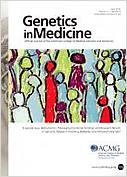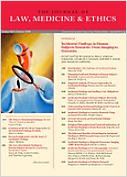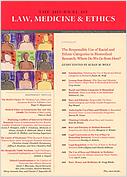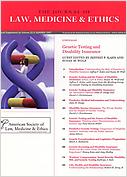The Minnesota-KPMP will recruit and follow-up study participants with chronic kidney disease due to diabetes or hypertension, the most common causes of chronic kidney disease, plus participants with type 1 diabetes who do not have clinical manifestations of kidney disease despite long diabetes duration. Underserved and underrepresented populations are disproportionately affected by chronic kidney disease, and the Minnesota-KPMP will engage a diverse patient population to evaluate and address barriers to enrollment in KPMP and to elicit the perspectives of local participants on ethical issues posed by the KPMP, such as return of results and biobank governance. In a highly diverse metropolitan area actively confronting racism and disparities, this will add significantly to KPMP community engagement and ethics.
This study will develop and implement a genomic return of result (gRoR) process in the Framingham Heart Study and Jackson Heart Study cohorts and explore associated medical, behavioral and economic outcomes. The study will also explore ways to automate and streamline genomic variant interpretation at scale, and pursue novel analysis techniques for aggregating data to aid assessment of penetrance. The discoveries generated will provide guidance for gRoR for large-scale population studies and biobanks, including underrepresented minority participants.
This innovative 3-year project, based cooperatively at the University of Minnesota and Vanderbilt University, has convened a national Working Group of top legal and scientific experts to analyze current federal and state law and regulation on translational genomics and to generate consensus guidance on what the law should be. The project team will build a searchable online database of relevant law and an annotated bibliography for free public access, systematically collect and analyze a range of stakeholder inputs, convene a national public conference, and publish analyses and recommendations to help shape the law to support genomic medicine.
MPMC’s new initiative is among the six interdisciplinary projects selected to receive Grand Challenges Research Interdisciplinary Team Awards from the Office of the Executive Vice President and Provost. MPMC II focuses on one of the most mature domains of precision medicine – pharmacogenomics (PGx), which despite its proven scientific basis and immense promise has not yet been widely implemented in healthcare
The Minnesota Precision Medicine Collaborative (MPMC) is a transformative initiative to use 21st century technologies – including genomics, informatics, bioengineering, analysis of environmental exposures, and behavioral sciences – to tailor health care to the challenges facing individuals and their communities.
This 3-year program developed a research educational program – Big Data Coursework for Computational Medicine (BDC4CM) – that instructs students, fellows, and scientists in the use of specific new methods and tools for Big Data by providing tailored, in-depth instruction, hands-on laboratory modules, and case studies on Big Data access, integration, processing, and analysis.
This empirical and normative bioethics research project was created to guide policy and practice about the disclosure of genomic incidental findings (GIFD), a much-debated topic. With ethical guidance from a multidisciplinary ELSI Working Group, we conducted an experiment designed to develop strategies for offering incidental findings to family members of probands in a biobank for pancreatic cancer.
This project addressed recent regulatory amendments that require CLIA-certified and -exempt laboratories that are subject to the HIPAA Privacy Rule to comply with new individual data-access requirements.
This 2-year project generated multiple articles on the question of how to handle incidental findings (IFs) and individual research results (IRRs). The question of whether researchers should return IFs and IRRs of clinical significance challenges the traditional line drawn between research and clinical care, a line fundamental to the structure of research practice, health law, and bioethics.
This funding encompasses work on two related projects addressing cutting-edge issues posed by the latest advances in biomedical science in the linked domains of genomics and reproductive technologies. Both raise high-profile issues of immediate concern to federal and state government, scientists, and physicians. Both projects address how legal and ethical obligations to those who are most vulnerable (participants in genomic research and children produced using reproductive technologies) should fundamentally change policy and practice.
This 2-year project convened a multidisciplinary working group of national experts to analyze and generate recommendations on managing incidental findings and individual research results in genomic research using biobanks and large archives. In order to understand the genetic contribution to a host of diseases and conditions of great importance to public health, scientists are increasingly assembling large biobanks, archiving many individuals' DNA and health information for scientific reanalysis over time.
This project, led by researchers at the University of Minnesota collaborating with a working group of prominent national scholars, tackled how researchers should handle incidental findings identified during research. Incidental findings are defined as unexpected findings beyond the domain of key interest in the research that have potential clinical significance, such as a suspicious mass revealed in a functional MRI (fMRI) study or an incidental finding of non-paternity in genetic research.
This project explored the impending collision between biological and regulatory classifications of population subgroups in American society. Researchers focused on the interaction between biological categories emerging from the effort to create a haplotype map of the human genome and preexisting categories specifying race and ethnicity embodied in the U.S. Office of Management and Budget's Directive 15, which governs collection of data by all federal agencies and in federally funded research.
This grant was awarded to the Center for Bioethics and Joint Degree Program in Law, Health & the Life Sciences to complete a comprehensive investigation of the ethical, legal, and policy issues in the use of genetic information in private and public disability insurance and to recommend policies based on the findings.













